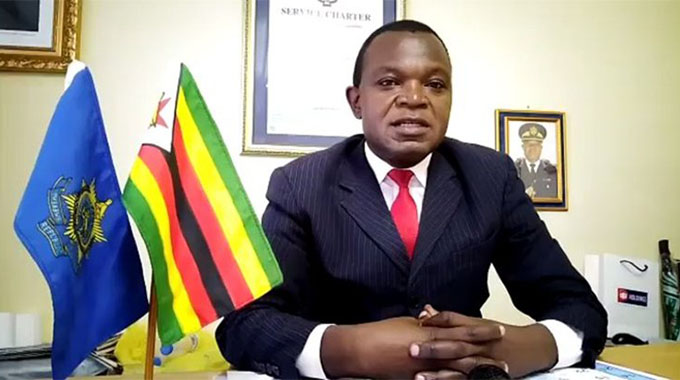‘2pc tax an albatross on business’
Africa Moyo Deputy News Editor
AM: Can you give us your sentiments on the 2020 National Budget?
TM: It is quite a very brave Budget. I think the minister tried by all means. If I was Minister of Finance, there is little space for doing something that is different from what he tried to do, let’s be honest and tell it as it is. As the private sector, one issue which had been coming out quite well is that of subsidies. I think if you agree with me, the issue of subsidies has always been a challenge in this country when you know time and again Government has been very populist on the issue of subsidies. And today, the inflation we have is a result of the subsidies they have been carrying for the past four or five years, and the minister has been brave enough to remove the subsidies.
Secondly, I think he should tweak Command Agriculture. I don’t think the Government should be the guarantor of this because it is an exposure to Government. Normally, we suffer from what we call the moral hazards; a bank when it knows that the Government is the guarantor, it can even recklessly issue some of the facilities for agriculture so there is no clear arrangement on how banks can manage this so that the Government will not be vulnerable.
Thirdly, on royalties, it is a good thing. If we look at one factor that is affected right now is the mining sector, so I don’t think there is anything surprising about him revising the royalties downwards, but he also needed to bring sanity because if you look at the rate of smuggling, given the informality of the mining sector in Zimbabwe, it is going to be a threat, especially in achieving a US$12 billion mining sector (by 2023). It is achievable, but very difficult especially given the structure of the industry where almost 60 percent of the output, especially of gold, is coming from artisanal miners.
AM: Tell us how the ordinary person benefits from this Budget?
TM: I think it is a Budget which is pro-poor. You see how it is touching on lives of women through sanitary wear. You also see how the Budget on its own is trying by all means to make sure that it releases the tax plan. What is very difficult maybe is to balance all the areas as the minister has said. It is always going to be difficult to have tax-free threshold incomes which are level with inflation. Inflation is a threat going to 2020. To me, I think the outlook cannot be very rosy in the short to medium-term. We have to tame a number of issues.
But overall, I am impressed with the minister’s Budget regarding: (1) the issue of subsidies; (2) how he tried to introduce incentives to the corporate sector, but the biggest incentive that the private sector is looking for now is macro-economic stability; it is more important than any facility.
AM: Tell us the impact of the 0,5 percent reduction in Value Added Tax (VAT), especially to the ordinary person?
TM: Obviously, when we talk tokenism in business, it is important. It is tokenism just like the reduction of corporate tax from 25 to 24 percent. We felt he could have reduced corporate tax to 20 percent on the basis of one issue, companies are already suffering from double taxation where we have that 2 percent (intermediated money transfer tax). It is a serious albatross on business.
We felt maybe since we were proposing for the 2 percent to be taxed back, meaning to say for the informal sector, we remove it then those in the formal sector have to pay it, it is now difficult to achieve that. So the only way we were going to ululate as the private sector was for the minister to make the tax deductible.
Even if you are a group through what we consider to be closer to transfer pricing, making a transfer from one subsidiary to another, you attract the same tax. So it’s an issue and we feel there is something that must be done.
AM: The private sector has been challenged to source funding for itself, what’s your take on that?
TM: Let’s be honest; this is a difficult market. There is what is called the sovereign risk, most of the players coming from Zimbabwe need support from Government. If we look at those investing in those exchanges in New York, Tokyo, among others, they have the support of their governments. In Zimbabwe, if you look at the situation right now, it makes life difficult for those who want to get out of the country to invest, but it is also an opportunity, for example, the energy challenges, they are an opportunity for us to get into this space.
Overall, I think the environment this Budget has created is pro-business. What is needed now is the implementation because these are proposals.
AM: There was a proposal during the post-Budget breakfast meeting that the Budget should have cancelled tax obligations for companies given the difficult operating environment in 2019. What do you think?
TM: No, if you look at the state of infrastructure in this country, you can’t talk of eliminating tax commitments, we need to pay the tax. The debate should never be on whether to cancel the tax or pay the tax, but the debate should be on what will be the most efficient tax regime, because if we look at corporate tax which was paid last year, companies are not paying tax. It is only 40 percent to 45 percent of companies that are paying.
So, maybe it is not about the number of companies paying or cancelling tax obligations, but about designing a tax system that is acceptable to themarket.
AM: Going forward, what do you advise the Minister of Finance, now that the 2020 Budget has been presented?
TM: I think he has to be brave, but I think at the same time he has to continue pushing away the political jacket and be a technocrat because obviously like any Finance Minister in the world, political noise will come but he should hear it but not listen to it. He has to implement his Budget. But for me, I think the only threat to this Budget are the politicians.





Comments